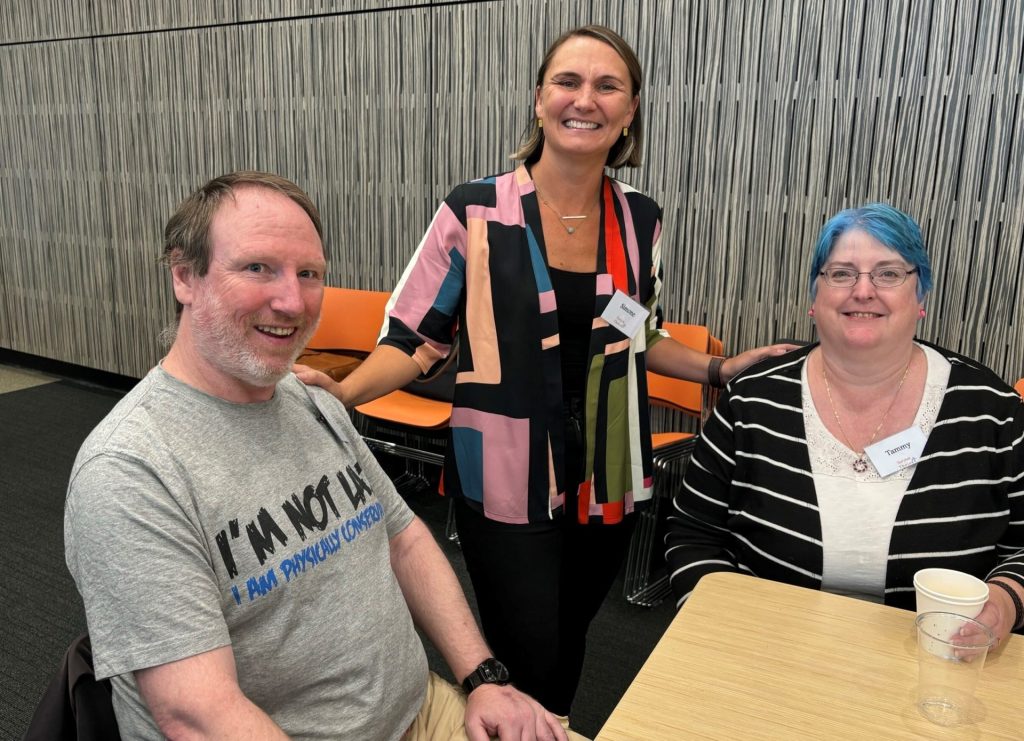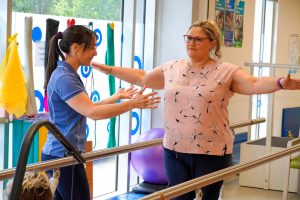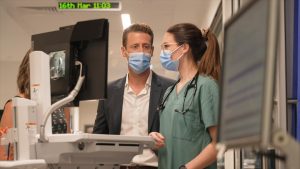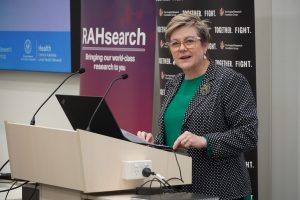The Royal Adelaide Hospital recently hosted the first Survive and Survive group session for 2024 — pictured are participants Tim and Tammy with physiotherapist Simone.
Thanks to continual improvements in medicine, more critically ill patients survive a period in an Intensive Care Unit (ICU) than ever before.
But leaving ICU isn’t the end of the story. Many people experience ongoing challenges after they’re discharged – something referred to as Post Intensive Care Syndrome (PICS).
PICS can include physical difficulties, worsening cognitive function (such as inability to focus, and problems with thinking) and poor mental health.
“Regardless of what led to a patient being in ICU in the first place, many go on to experience similar and ongoing problems once they are stable enough to go home,” said Simone Dafoe, Survive and Thrive Navigator and Principal Physiotherapist at the Royal Adelaide Hospital (RAH).
“We set up the RAH Survive and Thrive group as a way to support our patients and their families as they come out of ICU and transition back to a more normal way of life.”
A safe, supported environment
RAH’s Survive and Thrive is a voluntary, community-based group that supports patients and families by bringing them together with ICU medical, nursing and allied health staff.
“All ICU long-stay patients and their families and carers, as well as others at risk of PICS, are invited to attend our regular peer-support sessions,” Simone explained.
“Our sessions provide a safe environment for patients and families to meet others who have common experiences, and to connect with healthcare and community services.”
Sessions are planned and operated by a task force made up of CALHN staff and consumer representatives. Each session is facilitated by an experienced ICU clinician or consumer.
“We also work in partnership with Carers SA to support our patients and families during their hospital stay and after discharge,” Simone said.
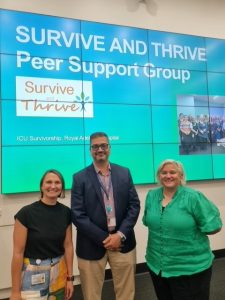
Positive patient testimonials
After a hiatus due to Covid-19, seven sessions were conducted throughout 2022/2023. The uptake of the programme has been extremely positive with growing numbers and many returning members.
Patient Andrew said Survive and Thrive sessions mean he now feels confident to attend outpatient appointments, reporting he felt heard, understood and that he now has people in his corner.
Brianna is a former long-stay ICU patient who has now become a consumer representative at CALHN. Thanks to Survive and Thrive, she said,
“I feel valued, understood and not alone.”
Alan attended Survive and Thrive after his daughter was cared for in ICU at the RAH.
“I started coming because I knew it would help my daughter,” Alan said.
“I keep coming because I think I can help others – and I realised that I needed this support too.”
Trauma has a lasting impact
Simone said it’s the nature of the care provided in ICU that can save a life in the short term, but create ongoing issues over a longer period.
For example, patients are typically sedated and physically immobile for days or even weeks, and often unaware of where they are and what they’ve been through when they regain consciousness.
The trauma associated with an accident or illness can also be a key factor.
“Patients tend to lose muscle mass and can struggle to put on weight after ICU, and they often experience ‘brain fog’, which affects their memory and decision-making,” Simone said.
“Anxiety, depression and post-traumatic stress disorder are also very common in patients, and in family members who have witnessed their loved one go through poor health and treatments.”
Simone said Survive and Thrive sessions help patients gain a sense of belonging and purpose linked with what they’ve been through – and an opportunity to give feedback regarding the care they received. It also offers a platform to re-engage patients with the healthcare system after long and complicated stays.
“Patients and families clearly benefit, and we as healthcare professionals also learn so much,” said Simone.
“It’s a win-win.”
How to join a Survive and Thrive session
Five Survive and Thrive meetings are planned for 2024. For more information or if you have patients/families you think would benefit please email:
